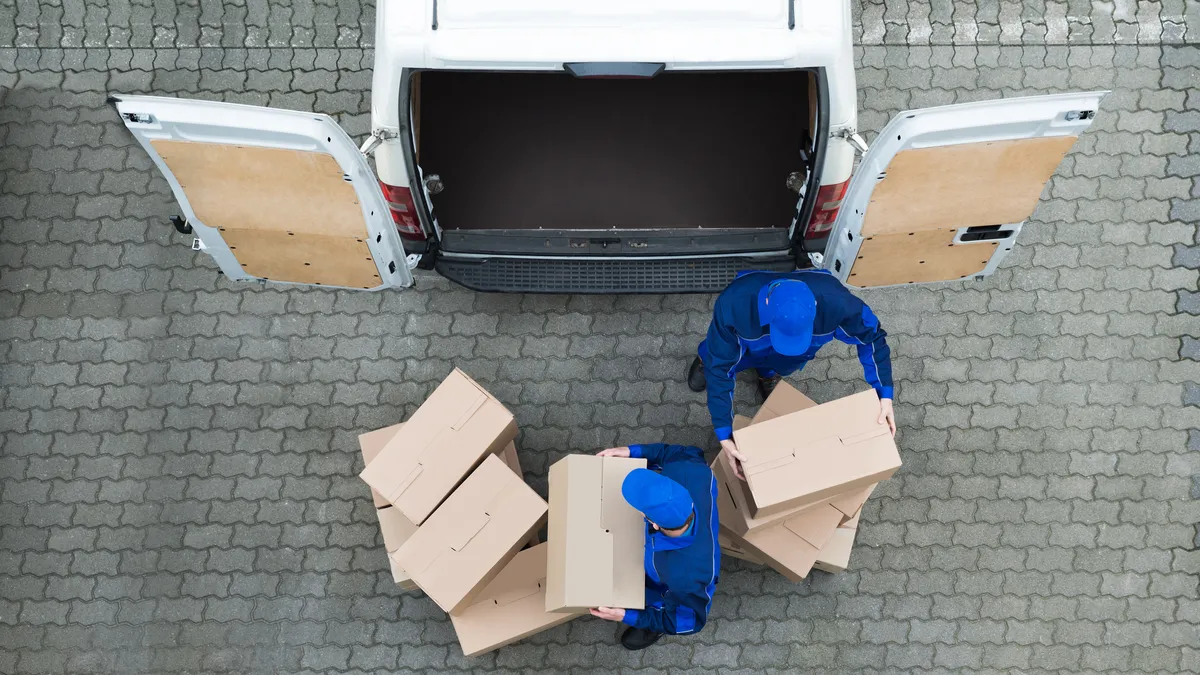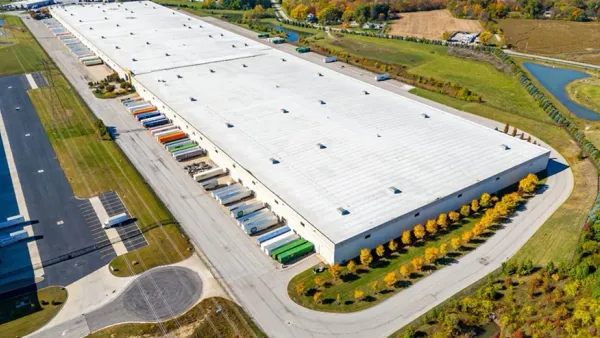Dive Brief:
-
Many retailers are already using in-store inventory to fulfill online orders in a short timeframe, and that's expected to increase as 40% of logistics companies anticipate offering two-hour delivery by 2028, according to a recent survey of more than 2,700 professionals in transportation, logistics, retail and manufacturing conducted by Zebra Technologies.
-
Among retailers who were surveyed, about 76% said they use existing store inventory to fill online orders. About 86% of retailers questioned said they plan to support a buy online/pick up in-store option within the next year, according to Zebra’s "Future of Fulfillment Vision Study."
-
About 78% of logistics firms surveyed said they will offer same-day delivery by 2023. Meanwhile, 87% of all respondents said they will rely on crowdsourced delivery or a network of drivers by 2028.
Dive Insight:
The survey results reflect much of what we have suspected has been happening with retailers for a while: They are gradually making changes to their brick-and-mortar store operations to allow them to fulfill more e-commerce orders and enable BOPIS services.
Retailers are retrofitting stores to double as online fulfillment centers, and sacrificing what used to be sales space to make that happen, Zebra said. If they are making that difficult decision, we can assume either they see real benefits ahead from doing so, or that they feel they don’t have a choice.
On the other hand, maybe it’s a bit of both. About 70% of surveyed executives believe retailers are turning their stores into fulfillment centers in part to accommodate the product returns that are likely to become more frequent with the introduction of free shipping and expedited delivery services, offerings which themselves are being adopted with the expectation that they can help increase online sales conversions.
More than 60% of retailers that currently do not offer free shipping, free returns or same-day delivery plan to do so, the survey also found. But, 87% agreed that accepting and managing product returns is challenging, which is perhaps why another 44% expect to outsource returns management to a third party.
While retailers pursue an omnichannel model, these companies and the ecosystem that surrounds them still have a ways to go. As other studies have surmised, even retailers that have omnichannel strategies often are not terribly confident they have the right strategy. Adding to this notion, Zebra’s survey showed that just 39% of supply chain respondents said they currently operate at an omnichannel level, with reducing backorders a top challenge, along with inventory allocation and freight costs.
But technology assistance is on the way. About 94% of respondents said they will use mobile barcode scanners for omnichannel logistics by 2021, a trend which should provide more real-time access to warehouse management systems. Adoption of RFID-enabled inventory management platforms also should be on the rise, one of many technology elements that should help create more connected, intelligent supply chains.














